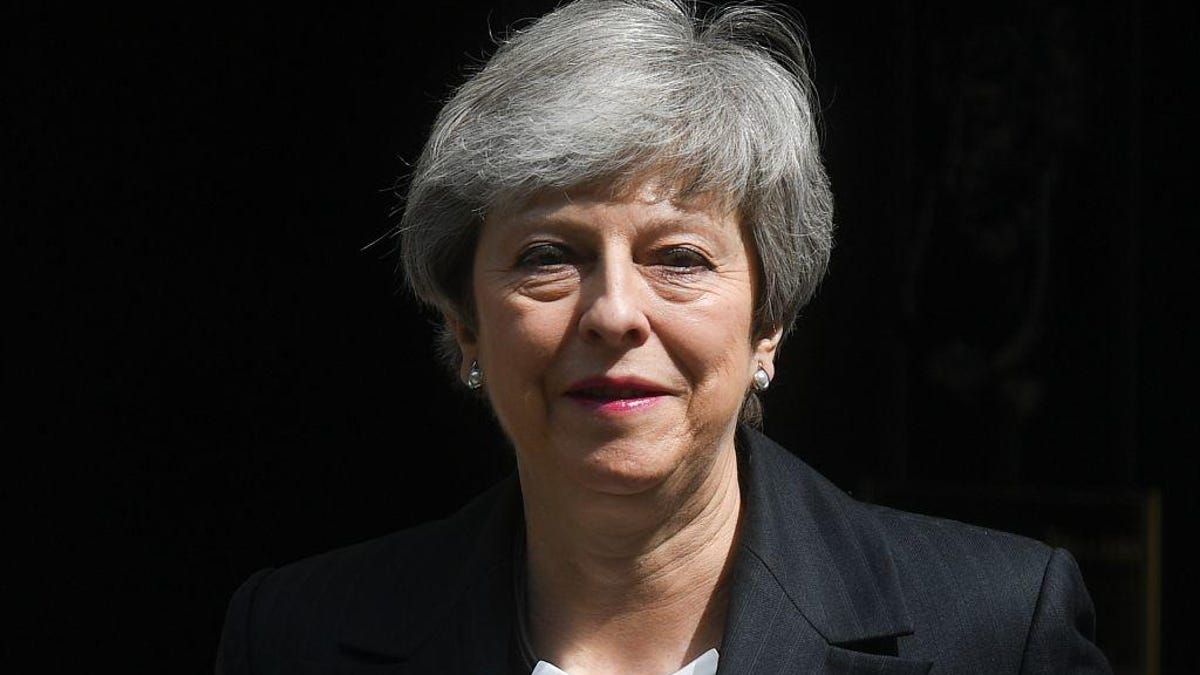Theresa May wants post-Brexit UK to stay 'best place in Europe' for tech
Uncertainty over Brexit is bleeding over into the country's tech scene, even as government and industry fight to maintain their position.

UK Prime Minister Theresa May spoke at the opening of UK tech week.
Brexit is coming, the prime minister is going, and meanwhile the British tech industry waits to see whether it'll retain its lead in the London tech scene.
For the current leader of the UK, Theresa May, ensuring the country continues to attract the best tech talent and new businesses is a priority, she said speaking at the launch of London Tech Week on Monday.
"I want to make sure Britain stays the best place in Europe to launch and grow startup," said the outgoing prime minister, who resigned as leader of the Conservative Party last week and will step down as the country's leader as soon as a successor is appointed. "We want this to be the place everyone thinks of, and comes to, first when they want to develop their world-changing tech ideas."
The UK is currently home to 20 out of the 64 billion-dollar tech companies (often referred to as unicorns) in Europe, with research released by the government on Monday showing that 13 such companies were formed in the country in the last year alone. London was also the top destination in Europe for technology investment in 2018, attracting nearly double the amount of funding than its nearest rival Berlin.
The British tech sector is growing over one and a half times faster than the rest of the economy, adding more than £130 billion to the country's economy every year, said May. But in spite of its current strength, the UK's position as Europe's tech leader is under threat. With the deadline for the UK leaving the EU pushed to the end of October, there remains significant uncertainty in the tech industry and beyond about what the impact will be on the British tech sector.
"For the existing and established companies, whatever happens, these companies will be prepared," said Taavet Hinrikus, CEO and co-founder of financial tech company TransferWise, also speaking at the Tech Week launch event. New companies, on the other hand, will have to weigh whether its worthwhile for them to build a business in the country, he said.
May said that key to securing the UK's future as a leader in tech will be securing relationships with international partners around the world -- something the government will do through upcoming future economy trade missions. The UK also boasts a strong regulatory environment, said May, which should ensure it remains a good place to do business for big tech and new players alike.
"The right regulation is what makes capitalism work," she said. "It's been true of previous technological revolutions, but government, and the sector as it becomes more mature, now see smart regulation as part of a thriving digital economy, rather than a threat to innovation."
The prime minister used the Tech Week launch event opportunity to announce a raft of investments -- both from the government and industry -- in UK tech totaling £1.2 billion ($1.5 billion). Quantum computing is a major recipient of the funding, along with programs where people can take AI and data conversion courses.
May also announced the launch of a tech competitiveness study, which will be conducted by industry partners including Microsoft. The aim is to identify opportunities and support for digital businesses in order to ensure the UK retains its current lead. "If we're going to maintain our position as global leader, our challenge is how we develop British tech and make it even better," she said.

